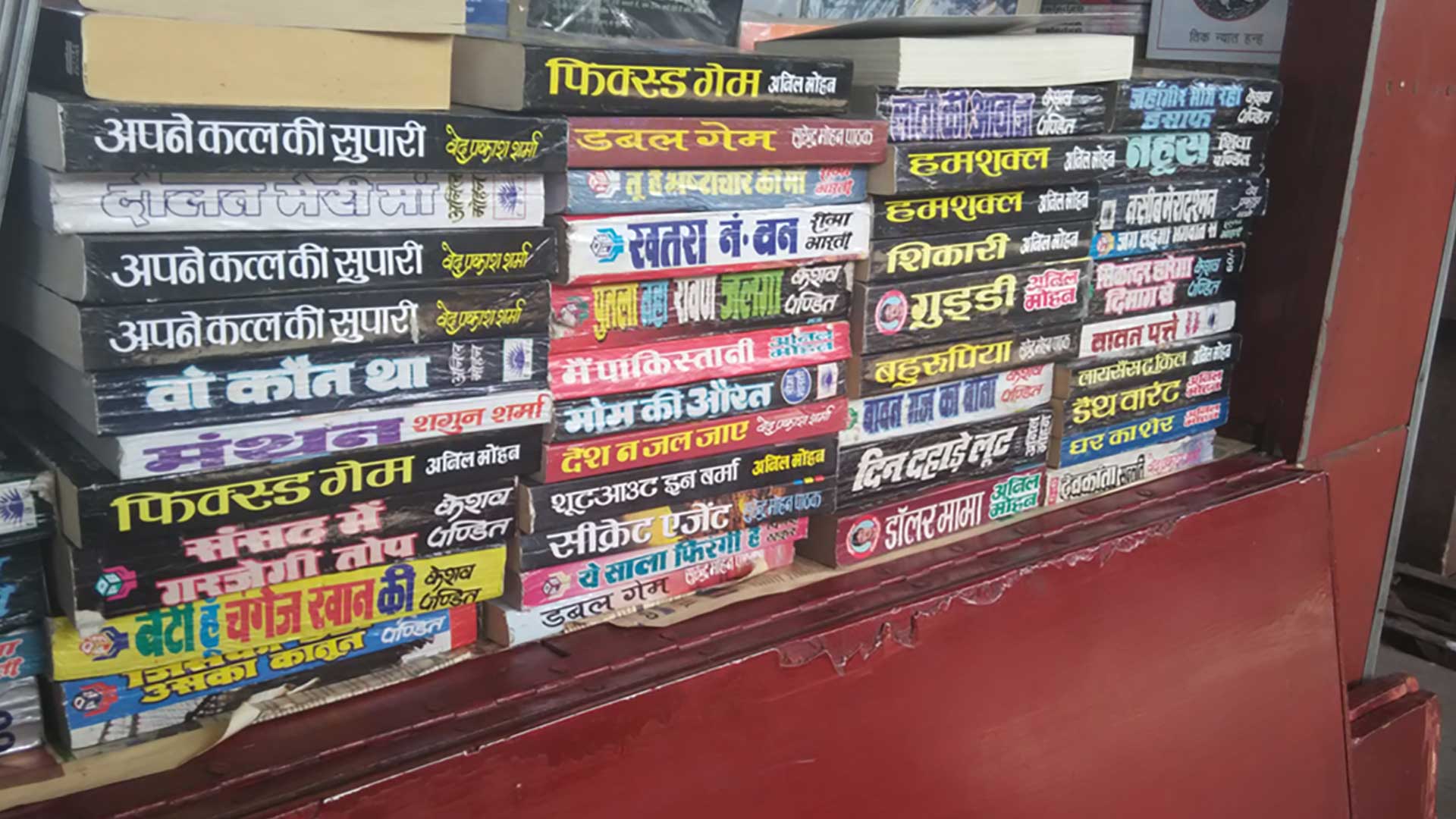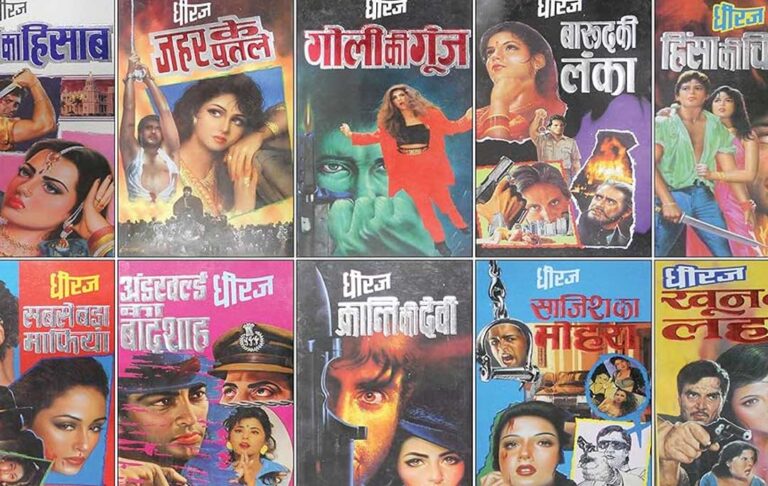The genre referred to as “pulp fiction” in English is known as “लुगदी साहित्य” or “घासलेटी” in Hindi. Despite its popularity, lugdi katha, as opposed to English popular fiction, developed with the support of three good friends—the film industry, the railway, and the readership—all of which have either disappeared or are on the brink of losing. In the 1990s, when Hindi pulp fiction was booming, its popularity witnessed an unprecedented growth. Just a little over two decades later, its world began to crumble, and on February 17, 2017, another blow struck with the demise of one of its most successful authors, Ved Prakash Sharma.
Ved Prakash Sharma, a prolific writer known for his novel “Vardi Wala Gunda,” passed away at the age of 62. Born on June 6, 1955, he gained fame with his debut novel “Dahakta Shahar,” published in 1973. It is said that Ved Prakash used to write under different names for a considerable period. When his novels gained popularity, those written under his own name also became well-known. “Kaidee Number 100,” a novel, became so popular that 250,000 copies were printed.
The novel industry was highly dependent on Uttar Pradesh, Bihar, and Madhya Pradesh, and Meerut could be called the Mecca of Hindi pulp stories. During the ‘golden age’ of novels in the ’90s, when most Indians sought information and entertainment from newspapers before cable TV, young and retired people spent their days reading these novels. At that time, you could find a small shop in every neighborhood selling novels and comics for 50 to 75 paise.
The entire novel industry relied on UP, Bihar, and MP, and Meerut was crucial. Many book vendors recall the days when Hindi pulp fiction books were bestsellers at their stalls. Today, they struggle to sell even a single copy in a day, considering it a challenge to diminish the habit of reading and reduce business in the pocket-sized books through the internet. Despite waning reader interest, Harper Collins, in its Hindi publication division, experimented with the lugdi katha style to maintain balance. They corrected the quality of the paper and kept its price according to readers’ pockets.

In recent decades, there has been a significant increase in English crime and spy novels by Indian authors, featuring intriguing characters like Vish Puri, Inspector Lalli, Inspector Singh, Reema Ray, and many others. Additionally, popular filmmakers like Piyush Jha and Neeraj Pandey have made several captivating films based on these novels, featuring well-known characters like Inspector Vikram and Ghalib Danger.
After reading them, Hindi lugdi stories are still highly attractive, entertaining, and engaging with a dose of mystery, crime, sex, and humor. Fans are eagerly awaiting more film adaptations from these thrilling novels, which have been a source of multiple successful films over the decades.
